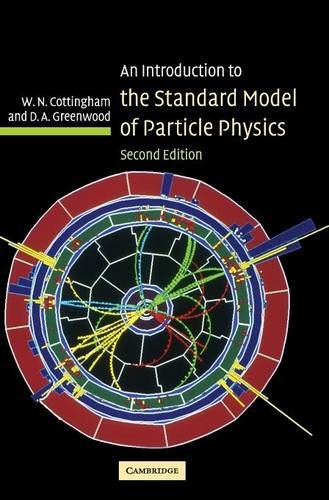An Introduction to the Standard Model of Particle Physics pdf download
Par cohrs mary le samedi, juin 11 2016, 00:48 - Lien permanent
An Introduction to the Standard Model of Particle Physics by D. A. Greenwood, W. N. Cottingham


An Introduction to the Standard Model of Particle Physics D. A. Greenwood, W. N. Cottingham ebook
ISBN: 0521852498, 9780521852494
Format: pdf
Page: 294
Publisher: Cambridge University Press
For an introduction to the Higgs boson, click here, here, or here (This last one is pretty good). The Center for Theoretical Physics (CTP) at Zewail City of Science and Technology has the pleasure to announce the launch of a course on The Standard Model of Particle Physics. For example, decades of theoretical and experimental studies used the dilepton decay distributions as crucial instruments (Drell-Yan and quarkonium production, Standard-Model couplings of vector bosons), but only recently some general characteristics of the angular distribution have been This seminar illustrates the basic notions of quantum mechanics that determine the shape of the decay angular distributions studied in high-energy particle physics. Obviously, the Higgs boson's mass is less than infinite. Here A, C and D are heavy new-physics particles and j stands for a quark jet. The Standard Model of Particle Physics (SM) is the theory that describes, well, everything with the exception of gravity (Yes, this is admittedly a pretty big exception). The Standard Model of particle physics is described by its symmetries — or the symmetry group (SU(2)xU(1)) under which matter contents transform. The course will take place from 18 June to 20 July on The course instructor will be Dr. Fundamental particles in the SU(2)xU(1) part of the Standard. So let's talk mass and why this is still a very good thing for particle physics. So the introduction of this symmetry is very important. Correcting the U(1) error in the Standard Model of particle physics. Interested postgraduate students with a required background in advanced quantum mechanisms who have been preferably introduced to quantum field theory are welcome to attend. Filed under: About — Nigel Cook @ 9:15 pm.